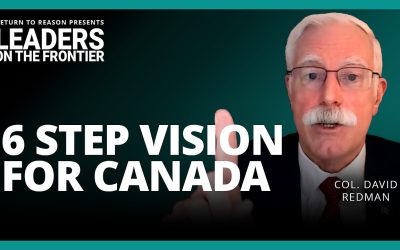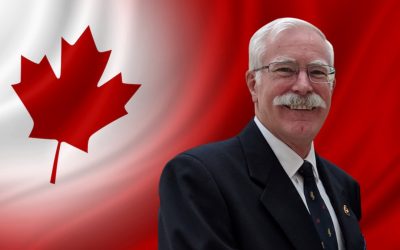Vladimir V. Putin, tyrant. The ex-KGB colonel is pushing Russia back to its Soviet past by clamping down on the media, manipulating elections, throwing the country’s richest tycoon in jail, renationalizing property, and becoming more assertive abroad. It’s so simple to see.
Or is it? When analyzing Russia, it is easy to get sucked down Alice’s rabbit hole, where nothing is ever quite what it seems. Remember how Western Kremlinologists got it all wrong? After failing to predict Mikhail S. Gorbachev’s rise to power, they never dreamed he would be outwitted by the buffoonish Boris N. Yeltsin. Then, no one in the West — neither the press nor professors, neither Presidents nor Prime Ministers, neither NATO, the CIA, nor MI6 — predicted the demise of the Soviet Union in 1991. After Russia’s financial collapse in 1998, few, if any, foresaw that the economy would grow by an astonishing 38% during the next five years.
In the same vein, Putin may yet confound those who forecast the resurgence of a neo-Soviet Union. That’s because there are two Putins inside the Russian President: the autocrat and the shrewd reformer. If the reformer gains the upper hand, a stronger, more democratic Russia may yet emerge.
For the moment, Putin the autocrat is the one inspiring widespread criticism. This is the ruler who has shown little appetite for the messy back-and-forth of democracy, who has steadily centralized power, who has grabbed effective control of the once-independent channel NTV, and who used underhanded tactics to ensure a landslide victory in the March presidential election — even though he was a shoo-in. This is the same Putin whose government ordered the arrest of Russia’s richest businessman, former Yukos Chief Executive Mikhail B. Khodorkovsky, on charges of fraud and tax evasion, a move that many consider politically motivated.
Hard Man Putin could go even further: He may decide to hit Yukos with a back tax bill so big that it bankrupts the company and Khodorkovsky is forced to give up his shares. In the worst-case scenario, the big privatizations of the 1990s may be declared illegal, creating chaos in the markets.
But such a scary outcome is not inevitable. Putin, after all, was handpicked by Yeltsin to continue the monumental task of reviving Russia. Putin learned the tactics of reform while serving under St. Petersburg Mayor Anatoly Sobchak, one of the earliest liberal politicians in Russia. As deputy mayor in charge of external relations, Putin even found time to earn a PhD in economics. His thesis advocated greater foreign investment in the raw-materials sector — hardly the position a nationalist neo-con would advocate. “Putin was very familiar with Western influences even in Soviet times, so he fits this role [of reformer] much better than Yeltsin,” says Alexei Mukhin, director of Moscow’s Center for Political Information.
Many observers focus on Putin’s KGB background and his entourage of siloviki, the “men of power” who hail from security backgrounds. But Putin’s government has more reformers than siloviki. Prime Minister Mikhail Fradkov is a former trade minister and representative to the European Union. His deputy, Alexander Zhukov, an economist and ex-businessman with a diploma from Harvard Business School, belongs to the reform camp. Economy Minister German Gref and Finance Minister Alexei Kudrin are strong free-market advocates.
Backed by these and other advisers, Putin has already changed Russia. “It’s not the same as the Soviet era,” says Al Breach, chief economist for Brunswick UBS, a Moscow brokerage. “The Putin reforms are about giving individuals more liberties, lowering the tax burden, and reducing administrative hassles. He’s trying to get the state’s back off individuals and support private enterprise.”
A $60 BILLION TRADE SURPLUS
Not many in the West know how much Putin has already achieved. By combining tight fiscal policy with a managed float of the ruble, his government quickly restored stability after the 1998 crisis. The government kept a lid on expenses, using the gains from high oil prices to pay off debt. Now the trade surplus is $60 billion, the budget is solidly in the black, and gross domestic product is growing by 7% a year. Under Putin, the state has paid wages and pensions on time while demanding prompt payment of taxes in cash, killing off the “virtual economy” — a seemingly intractable tangle of debts, arrears, and barter that characterized Russia in the 1990s.
Skeptics assume that this impressive performance stems mainly from high oil prices. Yet Russia’s growth is also being driven by a surge in productivity across all sectors — a predictable result of the market reforms launched in the 1990s and continuing, with much greater consistency, under Putin. Overall, labor productivity is growing by 14% a year. According to the World Bank, productivity grew by 107% in telecommunications, 48% in agriculture, and 42% in construction between 1996 and 2002.
With the nonoil sector gaining traction, reserves hitting $90 billion, and national accounts strongly improving, Russia may even withstand an eventual slump in oil prices. Peter Westin, chief economist at Aton Capital brokerage in Moscow, calculates that every dollar off the price of a barrel of crude would trim Russia’s GDP growth by less than three-tenths of a percentage point. So even a fall to $20 a barrel would leave the economy growing by around 5% a year.
Putin’s reforms are also giving companies and workers good reasons to emerge from the shadow economy. Aton estimates that between 1998 and 2002, the black market’s share of Russia’s GDP shrank from 45% to 37%. A big reason behind this shift: Putin’s decision to slash the personal income tax to a flat 13%. That brought millions of citizens onto the tax rolls. With their taxes lower, many workers now are pressuring employers to report their full income. Why? Because the workers are applying for mortgages, car loans, and retail credit, and want to prove to their banks that they have the income to afford the payments. Bank lending is surging by 30% a year, while ruble deposits rose by 50% last year.
Russia certainly looks a lot more prosperous than it did in 1999, the year before Putin took power. Annual disposable income per capita has more than doubled, to $1,368. Moscow is circled by new suburban-style shopping malls crowded with shoppers. Sales of new foreign cars in Russia were 203,000 vehicles in 2003, compared with 43,000 in 1999.
Businesses are far less exposed to the mob violence that once marred and often ended the lives of Russian entrepreneurs. According to the Internal Affairs Ministry, there were 70 contract killings in Russia in 2002, compared with 600 to 800 annually a few years earlier. “Under Yeltsin we were freer, but under Putin it is more civilized,” says Gennady Klimov, editor of Karavan, a local newspaper in Tver, a city 100 km from Moscow.
Russians under Putin have even forsaken their traditional pessimism. “We’ve identified a continuous and sharp rise in optimism that’s unprecedented for Russia,” says Andrei Milekhin, head of the Moscow’s Romir Research Group. “It began about 1 1/2 years ago. Now, after the elections, it’s even higher. It’s everything: confidence in the President and confidence that we will live better, that GDP will double, and that our children will live better.”
Consider the Shershniev family. Parents Zhenya and Natasha, were both actors in the summer of 1990. They lived in a small, two-room apartment in the center of Moscow near the Kiev railway station with their son and daughter, Ilya and Polina. Their meager paychecks didn’t go very far, but the stores didn’t have many products to sell anyway. The nearby Dorogomilovo Gastronom was as big as any supermarket in the U.S., but its shelves were usually empty, save for a handful of withered carrots and cabbages.
Now the Dorogomilovo store is filled with everything from once-scarce toilet paper and tropical fruits to Argentine beef and Russian-made dairy products. Ilya, now nearly 22, is co-head of Swiss Realty Co.’s commercial real estate office in Moscow. He recently traded in his used Mercedes S Class sedan for a new $69,000 BMW convertible. Polya, 19, is studying literature at the university and makes $600 a month working evenings as a reporter for the Moscow daily Novye Izvestia. She drives a used Peugeot and carries a new Louis Vuitton bag.
THE SPREAD OF PROSPERITY
Putin’s reforms are being felt not just in Moscow. Yes, it’s still all too easy to find examples of cities and villages filled with poor pensioners and unemployed factory workers. But things are looking up in many regions. In Tver, 44% of the population still lives below the poverty level. According to official statistics, real incomes there grew by just 4% last year, compared with 14% in Russia as a whole. Yet even here, new stores, apartments, factories, and banks are changing the face of the city. “It’s common in Russia now that money from Moscow is going into the regions,” says Alexei Surkov, general director of Sibur-pet, a shiny new chemical factory in Tver. “That’s good, because if a big plant or store operates [out here], they’ll have to build infrastructure around it.”
In Tver and elsewhere, Russian managers know it’s sink or swim. Take the Tver Sewing Factory. In Soviet days, 70% of the factory’s output was military or police uniforms. All that changed when the plant was privatized in 1994 — and the factory and its 1,700 employees were suddenly forced to fend for themselves. Instead of Red Army greatcoats, the factory now makes smart civilian suits for busy Russian businessmen — churning out around 25,000 each month. And it has found new customers as far away as Canada and the U.S. General Director Irina Alekseeva shows off the factory’s busy new marketing department, where fashionably dressed young women handle orders by telephone. On the shop floor, new German and Italian machinery testifies to the factory’s efforts to stay competitive. “We’re optimists. We have already survived difficult times,” says Alekseeva.
The same transformation is taking place in Voronezh, an industrial city of 800,000 some 500 km south of Moscow, at the heart of the “black earth” farming region. “This is just the place where you can challenge the idea that economic growth depends on oil prices. We don’t have any supplies of oil or gas,” says Deputy Governor Oleg F. Shakhov.
In former times, the city was a center of defense and agriculture, which took the biggest hammering when the Soviet Union collapsed. Yet today Voronezh is thriving. Industrial production rose by 10% last year, while real incomes were up by 13%. The city’s defense plants have switched from military to civil production. The Energia concern in the city center has gone from working on space rockets to making electric appliances — at a profit. Even more impressive is the explosive growth of small and midsize businesses in the region. Sergei Naumov, who heads the local branch of Opora, a small-business lobbying organization, says that Voronezh now boasts 600,000 small businesses, a twofold increase in the last three years. Many are small retailers, though some former defense plants have restructured into smaller units.
Much of the credit for the city’s renaissance belongs to the local governor, Vladimir Kulakov, who has encouraged the growth of small businesses and cracked down on bureaucratic corruption. Even local journalists and civil liberties organizations give him high marks, despite his background as a KGB general. One reason for his popularity: “In the past five years, we’ve seen the formation of the so-called third sector [of nongovernment organizations],” says Elena Volokitina, the spokeswoman for the Social Chamber of Voronezh Region, which represents local NGOs. Across Russia, some 70,000 such groups — seven times as many as there were a decade ago — address issues ranging from health care to legal advice to human rights. Kulakov shows no sign of wanting to suppress any of this activity in Voronezh. “Considering his background, he’s a person with completely liberal views,” says editor Dmitri Dyakov of the Voronezhsky Kurier.
Old-timers like Kulakov get plenty of insight into the workings of the new Russia from their young deputies. In Voronezh, much of the real responsibility for economic policy lies with Kulakov’s youthful deputy, Shakhov, a former businessman who was just 22 when Russia launched market reforms in 1992. Young reformers are making it into the top slots, too. In Tver, the recently elected governor, Dmitri V. Zelenin, is a 41-year-old former CFO of Norilsk Nickel, the world’s largest nickel producer. “I see myself more as a manager than a politician,” says Zelenin, who was elected by a landslide.
There’s still a lot more for the reformers to do. A few weeks after Putin’s March reelection, he announced he would raise taxes on oil companies (in other words, on the tycoons) while cutting payroll taxes for all other companies by one-third. One of his biggest goals now is to help private businesses by slashing red tape. Putin plans to pare the number of bureaucrats by 20%: He has already cut back the size of his Cabinet. And he plans to slash the number of licenses and permits required to register and run a private business.
When Russians grade Putin, it’s these economic moves that catch their attention. In a March poll by the Levada Center, a leading Russian polling organization, just 3% of citizens criticized Putin for failing to defend democracy and political freedoms. That compares with 34% who criticized him for the war in Chechnya and 24% who think he’s not doing enough to fight terrorism. Russians overwhelmingly wanted to reelect Putin. “We have an electoral monarchy, but we elected him ourselves,” says Boris Prasolov, chairman of the Social Chamber of the Voronezh Region.
This “monarchy” does have its critics — and despite the government’s control of the broadcasters, their comments are heard. The print media are very open in their criticism of Putin, slamming everything from the infringement of civil liberties and the war in Chechnya to the President’s persecution of Khodorkovsky. Even extremely sensitive topics, such as Putin’s handling of the 2002 seizure of a Moscow theater by Chechen terrorists, have not escaped media criticism. Recently several Moscow newspapers reported on lawsuits filed by relatives of victims against the President, who is accused of telling lies about the botched operation to storm the theater.
Even those Russians who would prefer a more liberal leader accept Putin. “When Putin was elected the first time, everyone was afraid that he would start arresting a lot of people. But the only one he arrested was Khodorkovsky,” says Moscow psychologist Masha Kapitza. To many people, Putin’s crackdown on Khodorkovsky looks less like an attempt by the state to reassert its direct control over Big Business and more like part of Putin’s drive to break the excessive political power of the oligarchs. “Big Business has existed and will exist, but it will not be able to buy the government,” says Finance Minister Kudrin. Many businessmen seem to support the new rules. “The current system represents the end of oligarchic capitalism in Russia. Business should not be involved in political issues,” says Vladimir O. Potanin, head of the conglomerate Interros.
Foreign investors are hardly deterred by the Yukos affair. “On the contrary, we’ve seen an enormous uptick in the number of American blue-chip CEOs coming to Russia in the past six months,” says Andrew Somers, head of the American Chamber of Commerce in Moscow. Cargill is set to break ground on a new $102 million vegetable oil plant in Voronezh. On May 6, Alcoa Inc. (AA ) announced it was buying two big aluminum plants from Russia’s Rusal. Lennart Dahlgren, country manager for Swedish retailer Ikea, which plans to invest some $1.5 billion in Russia during the coming five years, says companies should think about the long-term prospects . “I’m saying to all the big companies: ‘Just come here for a week, visit the shops, and see how people spend.”‘
In many ways, Putin’s rule is much like that of the czars of old. The people trust him, and the elites know they had better get along with him. Dmitri Trenin, senior associate at the Carnegie Moscow Center, sees many parallels with the regime of the last czar, Nicholas II, and his Prime Minister, Pyotr Stolypin, who tried to rejuvenate Russia’s economy with capitalist reforms. “We have an economic boom — and a business community that will defer to the Kremlin as they used to defer to the czar’s court for any decision that smacks of policy,” he says. Trenin argues that Russia needs time — and further capitalist development — before it can mature into a full democracy sustained by a politically active middle class. “Democracy in Russia will not grow out of wise heads or kind hearts. It will grow out of pocketbooks,” he says.
Putin could still go too far in the direction of state control. If he mishandles the Khodorkovsky affair and renationalizes Yukos and other big companies, he’ll dampen the hard-won productivity gains in the private sector. Foreign investors would probably bolt. Another key signal of Putin’s intentions will be his behavior in 2007, the year before the election. If he changes the constitution to give himself another term, Russia’s democracy will take a great leap backward.
Most Moscow observers do not think Putin will blacken his legacy that way. The more likely prospect is that he will appoint a favored successor as Prime Minister, giving that person a choice platform from which to run for President, just as Yeltsin did with Putin. Which Putin will prevail by 2007? The autocrat is on a roll. But don’t underestimate the power of the reformer to surprise.


